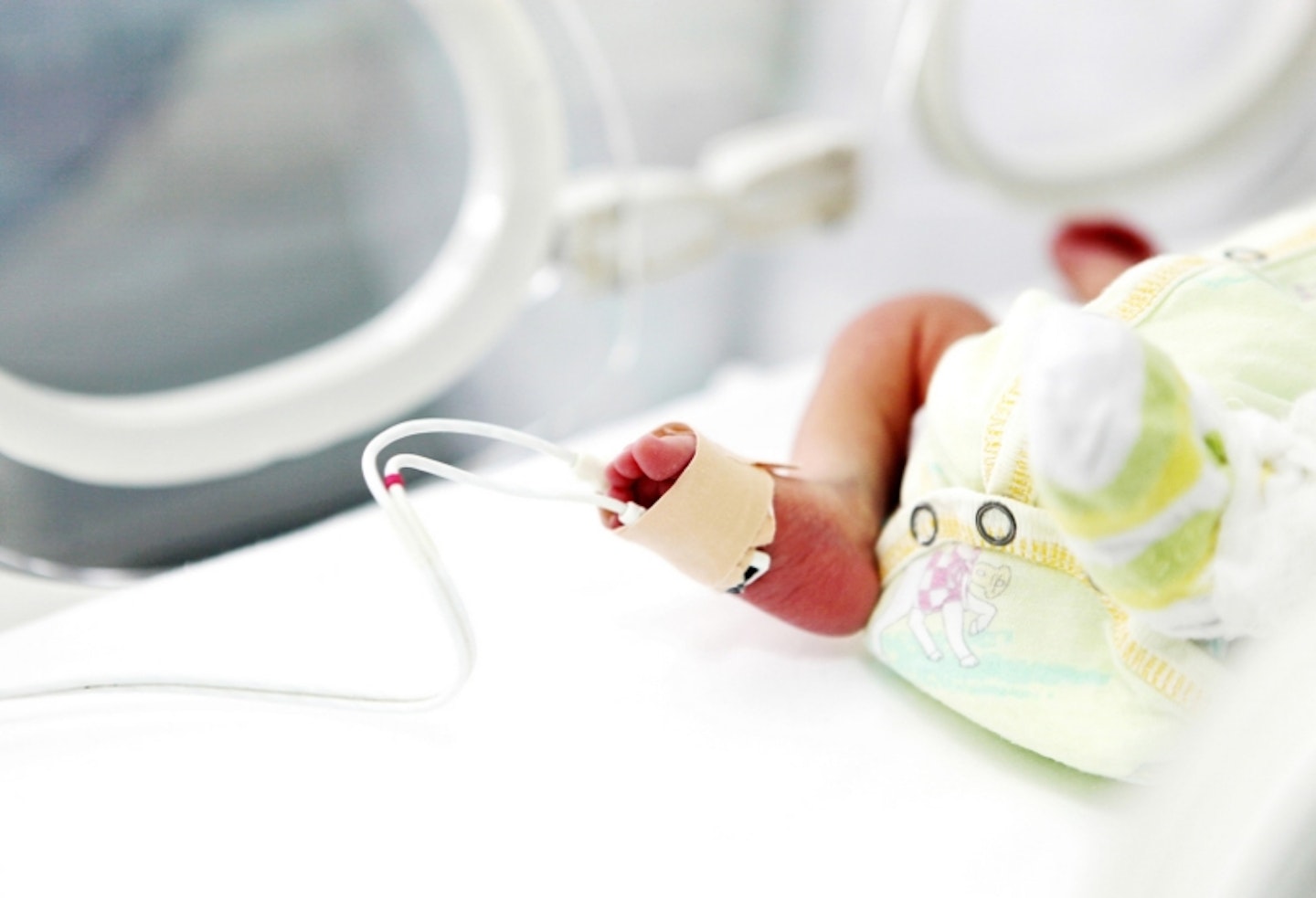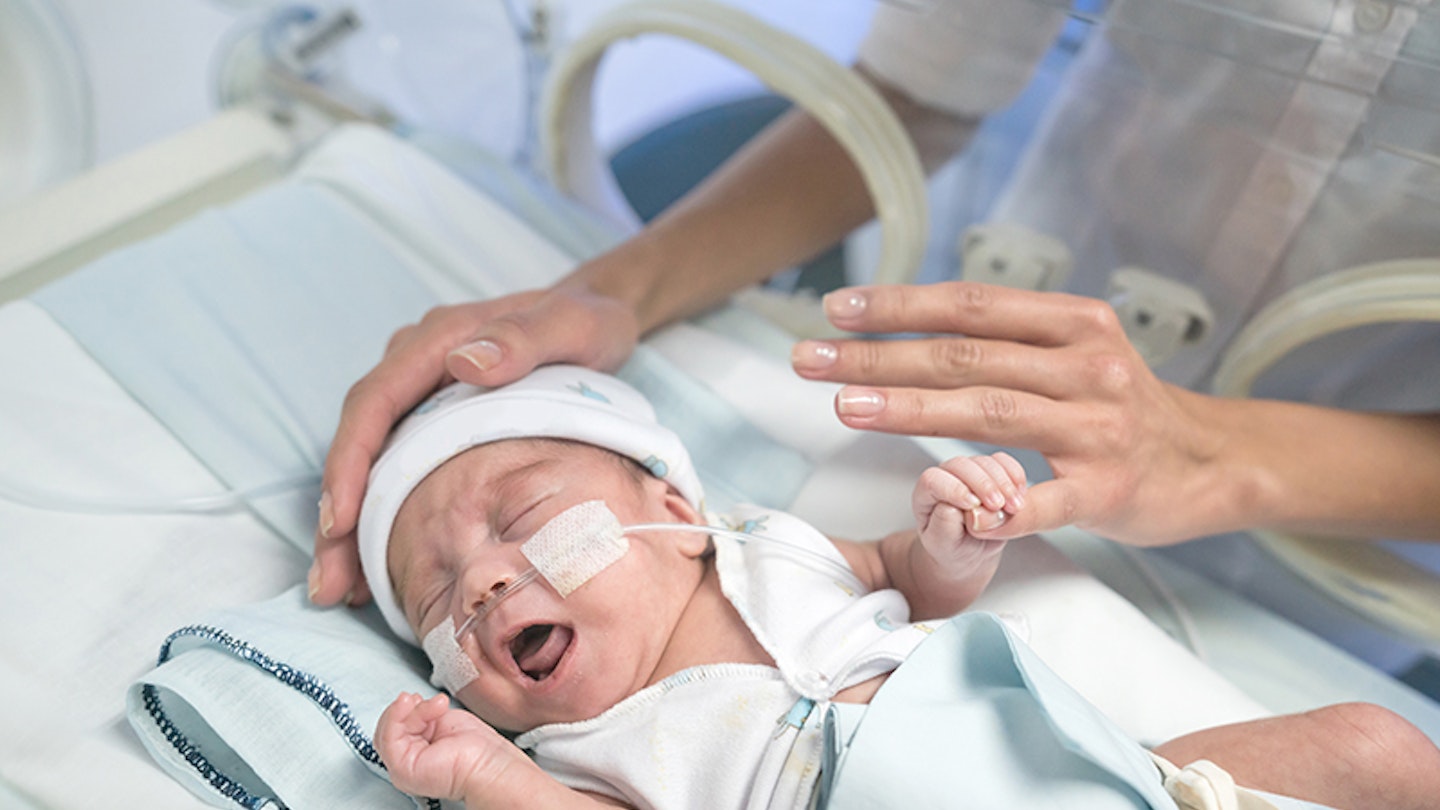You’re waiting for your baby to arrive around your due date, but what if they have other ideas? Every mum wants their baby to be happy and healthy which includes ideally carrying your baby to full term. However, some mums go into premature labour and are forced to give birth to their child earlier than they expected.
Premature labour can happen for a number of reasons but if you're worried there are certain factors that you can look out for and lifestyle changes you can make that can help you understand and potentially reduce your risk.
What counts as premature labour?
Any baby born three weeks before their due date/before 37 weeks is considered premature. The NHS recommends calling your midwife or maternity unit if you are less than 37 weeks pregnant and you have:
-
regular contractions or tightenings
-
period-type pains
-
a "show" – when the plug of mucus that has sealed the cervix during pregnancy comes away and out of the vagina
-
a gush or trickle of fluid from your vagina – this could be your waters breaking
-
backache that's not usual for you
What are the risks associated with premature labour?
Any baby that is born before reaching full term is vulnerable to the problems associated with being born prematurely. Serious problems are rare with babies born after 32 weeks but babies born before this point may require hospital treatment for help with breathing, feeding and temperature control, and often spend many days in an incubator on a [neonatal intensive care unit {href='https://www.motherandbaby.com/baby-and-toddler/baby/neonatal-unit-nurse-baby-definition' target='_blank' rel='noopener'}). Premature babies may also suffer from developmental problems as they have not fully developed in the womb.
According to the NHS, "Babies are considered 'viable' at 24 weeks of pregnancy – this means it's possible for them to survive being born at this stage." This means that babies born before 24 weeks are unlikely to survive.
What causes premature labour?
The cause of premature labour is not always known. There are several lifestyle factors that can increase your risk of premature labour as well as medical conditions or pregnancy complications. It is always best to maintain a healthy lifestyle during your pregnancy. This includes a healthy diet, avoiding restricted foods, exercise and cutting out things that can be harmful to your unborn baby, such as smoking or drinking.
Sometimes premature labour is pre-planned and the mother is induced. This is because it is safer for the baby to be born sooner rather than later, usually because of a pre-existing or pregnancy-related medical condition.
Premature labour risk factors:
Premature birth risk factors
 1 of 10
1 of 101) Weight
Being both underweight and overweight are linked to premature labour. If you have poor nutritional and a body mass index (BMI) of below 19.8 this can increase the risk of premature labour. Conversely, if you are overweight, with a BMI of more than 30 you can increase your risk of pre-term labour as well as miscarriage, diabetes, pre-eclampsia, blood clots, and having a heavy baby.
 2 of 10
2 of 102) Age
The risk of premature labour is slightly increased when mothers are teens or if they are over 35, which is often referred to as a 'geriatric pregnancy'. There are always both advantages and disadvantages to having children earlier or later in life so speak to your GP and midwife who can advise you.
 3 of 10
3 of 103) Smoking
Smoking during pregnancy increases the risk of stillbirth and premature birth up to two-fold. It is recommended that you quit smoking before trying to get pregnant and also whilst pregnant as it is linked to your waters breaking early, intrauterine growth restriction and cot death. The more cigarettes smoked, the higher the risk so check out these ideas on how and why to quit smoking.
 4 of 10
4 of 104) Alcohol or drugs
Alcohol is harmful to your baby and their development. There is no known safe level of alcohol exposure so it is recommended that you do not drink alcohol at all when trying to conceive and while pregnant to minimise the risk to your baby. This is the same for recreational drugs as they can cause premature labour and problems with growth and brain development.
 5 of 10
5 of 105) Overexertion in pregnancy
Another factor that could mean you go into labour early is if you are working long hours in a physical job in the late stages of pregnancy. Bending and stretching for more than an hour a day could triple your chances of going into labour early, so make sure you change the way you work. This also counts for very strenuous exercise - although exercise during pregnancy is still recommended.
 6 of 10
6 of 106) Stress
In extreme cases, stress can increase your risk of premature labour. Major life events like a bereavement can cause stress as well as physical abuse or mental health conditions. If you feel stressed, speak to a friend or family member and also consult a GP who can get you the right help.
 7 of 10
7 of 107) Twins/multiple pregnancy
One of the most common reasons for giving birth early is being pregnant with more than one baby. ‘Spontaneous early labour is common with multiple births for no particular reason, but other factors include preeclampsia and gestational diabetes,’ says Andrew Shennan, professor of obstetrics at Guy's & St Thomas' Hospital, London. ‘A high percentage of multiple births are delivered at 35-37 weeks.’
 8 of 10
8 of 108) A previous premature birth
If you have previously had a premature baby, there is a slightly increased risk of future babies being born early, but many second- or third-time mums do carry their baby to term.
 9 of 10
9 of 109) Pregnancy complications
Certain pregnancy complications may lead to a second premature birth, these include infections in the vagina or uterus, placenta praevia, placental abruption, pre-eclampsia or gestational diabetes.
 10 of 10
10 of 1010) Medical history
Women who suffer from type one or type two diabetes may be at more of a risk of premature labour. Other medical conditions that could increase the risk are high blood pressure, a uterine abnormality or antiphospholipid syndrome .
Did you know the premature birth risk factors? Let us know on Facebook or Twitter!
Make sure you're following Mother & Baby on Instagram for relatable memes, inspiring stories and parenting hacks!
Join the club! Introducing our brand, spankin’ new Facebook group called #mumtribe. Simply search ‘#mumtribe’ into the search bar and meet like-minded mums, win gorgeous goodies and have some fun!
Have approx 60 seconds to spare? Why not join thousands of mums-to-be and start your very own Amazon baby wish list! They're absolutely free to create and perfect to send to the friends, aunties and your mum to make sure you're getting the baby products you really need...Click here!
